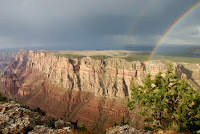 It is not necessary to think about the Supreme Being as a personal god. Pantheism claims the Universe is God, that God is all that exists.
It is not necessary to think about the Supreme Being as a personal god. Pantheism claims the Universe is God, that God is all that exists.This does not mean the God of theism is equivalent to the Universe. That would be absurd because Theism clearly distinguish the Creator from Creation.
Pantheistic conceptions are found everywhere in oriental religions.
In occidental tradition, Baruch Spinoza was the philosopher who stood out in defense of Pantheism. Spinoza’s pantheism was a monism of one only substance and many attributes. He believed in some kind of pre-designer Soul who committed suicide in the act of creation of matter.
Some people believe the Universe is some kind of living being.
But the pantheism that interests me, and that can also be interesting to atheists is Naturalistic Pantheism, the one that some call Scientific Pantheism. (I considered this last term an oxymoron).
Naturalistic Pantheism is based in the feeling of awe and amazement that some people feel when contemplating nature:
When scientific pantheists say WE REVERE THE UNIVERSE we are not talking about a supernatural being. We are talking about the way our senses and our emotions force us to respond to the overwhelming mystery and power that surrounds us. [1]
There are even authors famous for their atheism or agnosticism that share this feeling of awe for Nature.
Carl Sagan said:
A religion old or new, that stressed the magnificence of the universe as revealed by modern science, might be able to draw forth reserves of reverence and awe hardly tapped by the conventional faiths. Sooner or later, such a religion will emerge. [2]
Also noteworthy are the comments of the radical anti-theist Richard Dawkins:
"I don't think they come much more anti-religious than I do," claims Richard Dawkins. "And yet there are objects and occasions which invoke in me a profound sense of the sacred." He goes on to describe being moved to tears in the presence of the great fossils of palaeo-anthropology in Kenya or of "the strata of geological time laid out before you" at the Grand Canyon.
"The human mind is big enough, and imaginative enough, to be poetically moved by the whole sweep of geological ages represented by the rocks that you are standing among. That's why you feel awe. That's why you feel as though you are undergoing a religious experience."
Dawkins' feeling of 'awe' is echoed by Simon Blackburn. "Despite being an atheist, I find a lot of things arouse a sense of the sacred in me. Works of art or music, sublime grand spectacles in nature, the starry heavens above and the moral law within, the oldest human skulls in Kenya or the newest human baby in a maternity ward can all be fitting objects of different kinds of awe and reverence." [3]
Some people don’t understand pantheism, and discard it lightly, like Schopenhauer did, because they believe it’s superfluous to identify Nature with God. Nevertheless, pantheists consider that their affirmation that the Universe is divine is not superfluous, since de attribute of being divine is clear and distinctive.
Others teach that Pantheism and atheism are compatible based on a definition of atheism as the denial of theism. I consider this definition of atheism as the expression of cultural provincialism that sees religion from the traditional view of Western Christianity, and doesn’t take into account other wider conceptions of spirituality.
I am of the opinion that there are atheists that should stop identifying themselves as such, and should start pronouncing in favor of Pantheism.
See also:
- Pantheism (Wiki)
- Pantheism: the World Pantheist Movement
- Pantheism (Stanford Encyclopedia of Philosophy)
Notes
[1] Scientific Pantheism:
Reverence of Nature and Cosmos.
[2] Ibid.
[3] Cited in Shock and Awe.
Comments